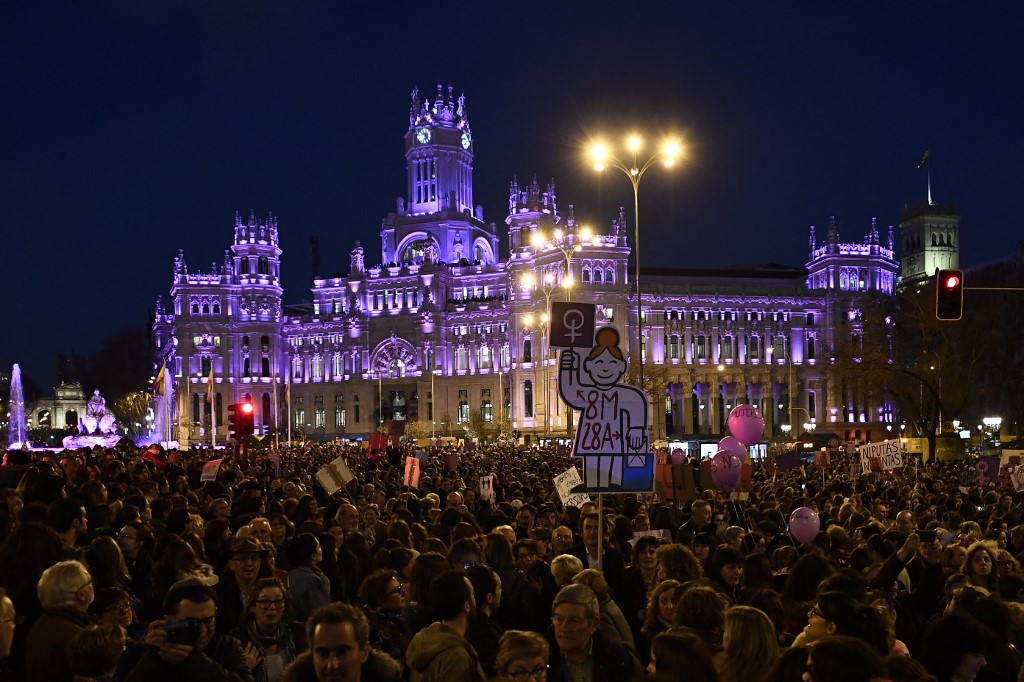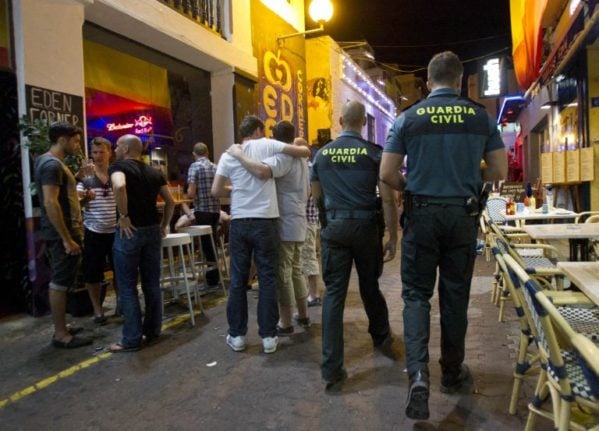Encyclopaedia Britannica defines machismo as an “exaggerated pride in masculinity, perceived as power, often coupled with a minimal sense of responsibility and disregard of consequences”.
Now picture Luis Rubiales celebrating by grabbing his privates next to Spanish Queen Letizia and Princess Sofía, or lifting a player over his shoulder as if she were a leg of cured Serrano ham, and of course clasping Jennifer Hermoso’s head as he kissed her on the lips; all this moments after Spain won the Women’s World Cup for the first time in history. His initial reaction to those who criticised him was to call them gilipollas (arseholes) on live radio and he has played down his actions ever since.
Rubiales’ antics certainly seem to fit the dictionary definition of the Spanish macho on steroids. But there’s more: the build and look of a bouncer, his unrefined way of speaking for a man of his station, the slap on the back he gave Spain’s PM Pedro Sánchez after shaking hands with him.
This disregard of protocol, overconfidence and air of impunity are what many in Spain already found rather grating about Rubiales, and we’re not even talking about the problem of sexism in Spanish football yet.
PROFILE: Who is Spain’s disgraced football chief Luis Rubiales?
It wasn’t that long ago that Spain (the men at least) collectively laughed at what they call el macho ibérico, a stereotypical image of the Spanish man born from the 1970s films of Alfredo Landa (the character played was usually hairy, crass, working class and obsessed with women).
This mildly erotic comedy genre, known as Landismo, isn’t dissimilar to the British “Carry On” films or “Benny Hill”.
In the nineties and noughties an even more slimy film character called Torrente took the stereotype further still, and Spanish society continued to turn a blind eye while it giggled at its slapstick sexism.
Somewhere along the way, the sexually charged image of the macho ibérico got mixed up with the concept of freedom in post-Franco Spain.
A young Javier Bardem in the 1992 film “Jamón Jamón” is therefore often cited as the archetypal Spanish purebred.
“The Iberian macho is a Quixote, a madman who deep down has a good heart, but is clumsy, brutish and lacks sensitivity”, the film’s co-writer Cuca Canals once said.

The Spanish machista (male chauvinist) had come to be almost endearing, typically and proudly Spanish, even if that meant ignoring everything bad that came with it: the smack on the bum from a work colleague, the unsolicited compliments from men in the street, or the forced kisses on a first date.
Over the past decade Spanish society has begun to see these behaviours from a different perspective as its feminist movement grew stronger and gender violence laws together with extensive media coverage have given more visibility to what ‘traditional’ gender roles and attitudes can lead to: hundreds of murdered women and gang rapes such as that by the so-called ‘Wolf Pack’ in Pamplona in 2016.
READ ALSO: How Spain is struggling to curb the scourge of femicide
The country now stands largely divided as the overtly progressive laws of junior governing party Unidas Podemos are seen as ‘too much, too soon’ by the more traditional right-wing sector of Spanish society.
Spain’s sexual consent or ‘only yes means yes’ law – which can technically lead to a prison sentence for someone who kisses a person without their consent – has had the catastrophic consequence of reducing jail sentences for over 1,000 rapists and the release of more than 100, dividing Spanish opinion in the process.
The trans law, which allows people aged 16 or older to change their gender identity in the civil registry without undergoing hormonal treatment or obtaining a medical diagnosis as was previously the case, is both ground-breaking and controversial.

A largely younger, more liberal Spain is embracing these laws that put the country at the forefront of female and transgender rights, and they view Rubiales’s behaviour as deplorable, proof of a lingering sexism and abuse of authority in powerful male-dominated spheres of influence.
On the other side of the spectrum there are those who fail to see why the international media is giving so much attention to what the Spain football federation president described as a “peck” and argued it was “mutual, euphoric and consented”.
READ ALSO: What are the rules of kissing in Spain?
Was it just one sexual microaggression too many?
What many are unaware of is that players for Spain’s female national side have experienced much worse.
Ignacio Quereda, La Roja’s coach for 27 years from 1988 until 2015, repeatedly humiliated generations of female players, with comments such as “you’re fat”, “you need a man” and “your bum is as big as a bull ring”. He was also caught on camera physically abusing them by pulling hard on their ears and cheeks, as seen in the Movistar+ documentary called Romper El Silencio (Break The Silence).
Spain never qualified for a World Cup in all his tenure, but his close relationship with Rubiales’s predecessor Ángel María Villar ensured he stayed on until the ‘man of the moment’ took over.
Under the current coach Jorge Vilda with whom Spain just won the World Cup, there were already signs of simmering resentment brewing as in 2019 15 players staged a mutiny to get him sacked for his “dictatorial” methods.
As if by fate, minutes after La Roja had been crowned champions and the first time they truly had a voice on the world stage after years of being silenced, an incident highlighting what female footballers have been subjected to in Spain came in the form of a non-consensual kiss.
An unwanted kiss that’s snowballed and taken the #MeToo movement to new heights under the new slogan #SeAcabó (“It’s Over”), not because of the severity of the incident itself, but for what it represents, that even when a female football team has proven itself to be the best in the world, the achievement can be tarnished, sexualised and belittled by male chauvinistic behaviour.
Spain – the land of the Iberian macho that could have his way with a woman, mansplain, or determine her future – is changing its patriarchal attitudes.
It’s happening in politics, in school classrooms, in daily conversations between Spaniards and now in the country’s national sport: fútbol.
READ ALSO:



 Please whitelist us to continue reading.
Please whitelist us to continue reading.
Member comments